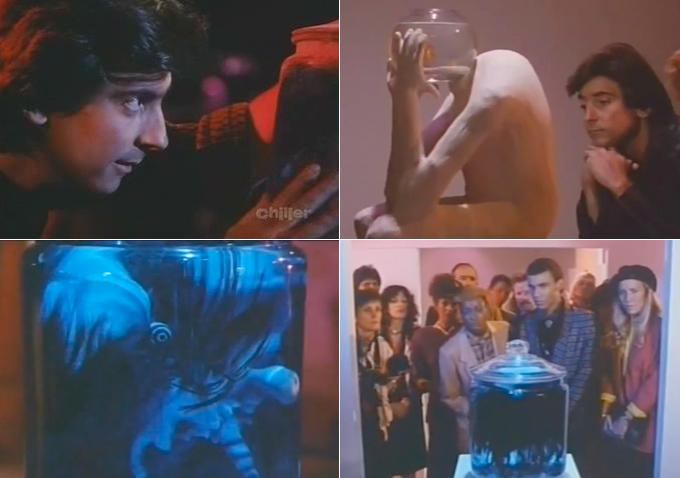 With “Big Eyes” opening next month (apparently to a less-than-enthusiastic response from those who’ve already seen it), and the holiday season just around the corner, it’s an appropriate time for us here at the Playlist to appreciate the Tim Burton of yore. Indeed, there was a time when Burton’s now-inimitable style seemed genuinely fresh. A delicate marriage of morbid gothic weirdness and a sort of aching fairy-tale fragility is and was the director’s signature operating mode, but he’s exhausted this technique to diminishing returns in the last few years in disappointing vehicles like “Dark Shadows” and “Alice in Wonderland.” What’s important to remember, though, is that Burton had a stellar run early in his career, back when he was the macabre genius known for sick-puppy classics like “Beetlejuice,” “Pee Wee’s Big Adventure,” and—still the glummest of all the Batman films, in this writer’s opinion—“Batman Returns.” Hot off the unprecedented success of ‘Pee Wee,’ Burton went on to direct a segment for a reboot of Alfred Hitchcock’s seminal suspense program “Alfred Hitchcock Presents.” That segment, called “The Jar,” has recently resurfaced online and we have it here, in all its creepy glory.
With “Big Eyes” opening next month (apparently to a less-than-enthusiastic response from those who’ve already seen it), and the holiday season just around the corner, it’s an appropriate time for us here at the Playlist to appreciate the Tim Burton of yore. Indeed, there was a time when Burton’s now-inimitable style seemed genuinely fresh. A delicate marriage of morbid gothic weirdness and a sort of aching fairy-tale fragility is and was the director’s signature operating mode, but he’s exhausted this technique to diminishing returns in the last few years in disappointing vehicles like “Dark Shadows” and “Alice in Wonderland.” What’s important to remember, though, is that Burton had a stellar run early in his career, back when he was the macabre genius known for sick-puppy classics like “Beetlejuice,” “Pee Wee’s Big Adventure,” and—still the glummest of all the Batman films, in this writer’s opinion—“Batman Returns.” Hot off the unprecedented success of ‘Pee Wee,’ Burton went on to direct a segment for a reboot of Alfred Hitchcock’s seminal suspense program “Alfred Hitchcock Presents.” That segment, called “The Jar,” has recently resurfaced online and we have it here, in all its creepy glory.
Burton’s “The Jar” is adapted from a 1944 short story written by the great Ray Bradbury. In Bradbury’s story, a down-on-his-luck farmer makes a terrible mistake when he purchases a jar with a strange, milky, unclassifiable thing floating inside of it. Burton’s update trades the farmer for a moody artist played with deadpan aplomb by Griffin Dunne, whose presence suggests he’s playing his character from “After Hours” if he had hung around Linda Fiorentino’s house just a little longer. Dunne’s urban mope finds the jar this time in the trunk of a vintage Mercedes that he buys from a menacing midget—just one of many odd flourishes that can now be classified as Burton-esque. I won’t spoil what transpires, but the kooky vibe of Burton’s “The Jar”—the bad haircuts, the symmetrically warped, rococo set design, and impressionistic lighting—reminds one of how unpredictable his talents were once considered to be. The segment’s peculiar tone, one that would blossom into a full-tilt comic nightmare in his next film “Beetlejuice”, is certainly on full display here. It’s a terrific distillation of everything that once made Burton one of our most idiosyncratic directors, and a telling examination of his career trajectory since those early films. [Open Culture]

